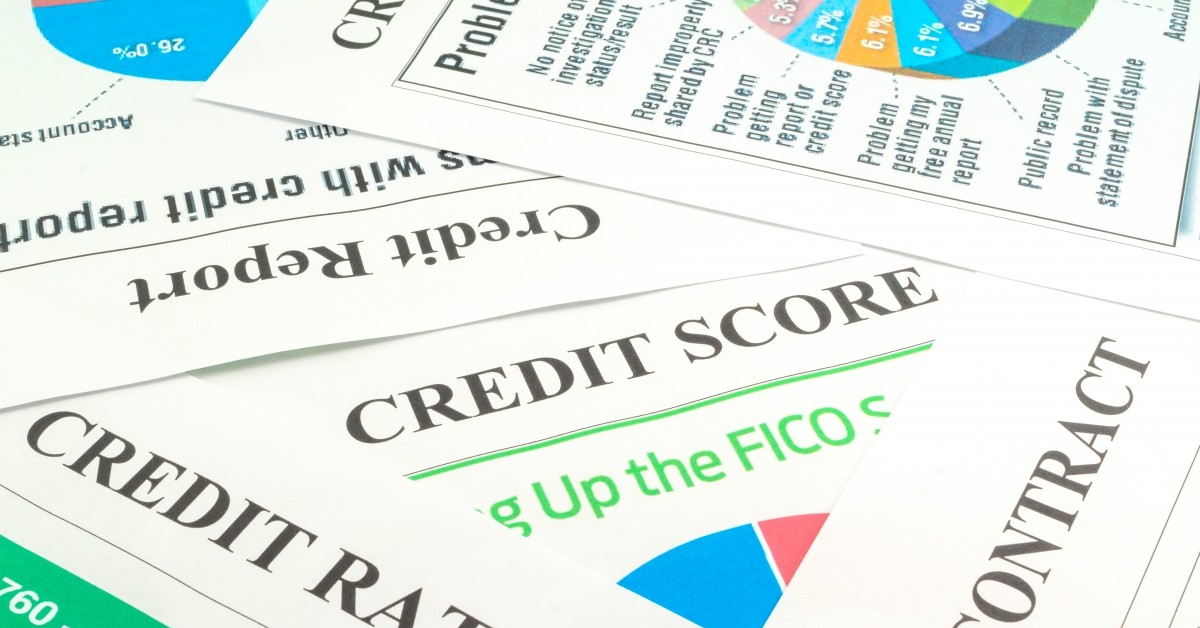Quick Tips for Improving Your Credit Score

During any discussion of finances, someone will inevitably mention credit scores. Credit plays a major role in finances these days, and depending on the state of your credit score, it can help or hinder you in making major decisions like investing in real estate.
As a non-recourse loan lender, we’ve worked with clients to get them the financial support they need to invest in real estate options like vacation homes or rental properties. One of the things we discuss with our clients is their credit score. If you’re interested in getting a non-recourse IRA loan but are concerned about the state of your credit, here are a few quick tips you can follow to help bolster your score.
But What is a Credit Score?
First developed by the Fair Isaac Corporation, your credit score is not unlike a report card for your finances. Rather than looking at how well you understand geography, your credit report instead shows lenders your creditworthiness, or how likely you are to pay back any money you’ve borrowed. Your credit score is determined by looking at your credit and borrowing history. After looking at your credit history, the three main credit bureaus, Equifax, Experian, and TransUnion create a credit report using a scoring model and produce a number that’s somewhere between 300 and 850.
Why is a Good Credit Score Important?
Any time you apply for a line of credit or for a new loan, the lender will want a sense of how much risk they’re taking. They want to minimize their risks and save their money by only offering lines of credit to those they know will be able to pay them back. The better your score, the better the lending options you’ll have with lower interest rates. Lenders may limit their risk by offering higher interest rates with shorter repayment terms to those with lower credit scores.
So what’s a good credit score and what’s a bad one? Here are the ranges of credit:
- Poor credit: 300 – 579
- Fair credit: 580 – 669
- Good credit: 670 – 739
- Very good credit: 740 – 799
- Excellent credit: 800 – 850
In a blog post from 2018, we spoke in-depth about the importance of a good credit score. In case you didn’t have time to read it, here’s a quick recap: A good credit score can help you with your insurance rates, with a higher score meaning lower rates. Your utilities might also be affected by your credit score, with your rates being affected. In some cases, the utility provider will ask for a larger security deposit. Perhaps most importantly for those looking for a non-recourse IRA loan, a good credit score can help you secure the best loan options. Lenders may offer your subprime loans, or may not offer you a loan at all if your credit score isn’t in the shape they’d like it to be.
How to Improve Your Credit Score
The fact is, improving your credit score is actually quite simple. The challenging part is how long the process can take. Even though this process can take several years in some cases, it’s important to start it sooner rather than later. Here are some proven methods for improving your credit score.
Take a Look at Your Credit Score
The first step is an obvious one ─ examine your current credit score. You can request a credit report from all three of the major reporting bureaus for free once a year. Once you’ve got all three of these reports, look for any reporting errors, inaccuracies, or signs of missing information. You can do this yourself or work with a financial advisor. Make sure to keep an eye out for obvious errors like missing or late payments.
If you find information that is incorrect or needs to be changed, you can dispute the error to have it fixed. The credit bureau has 30 days to make these corrections, so starting this process early can only help.
Make Payments on Time
This tip might seem like common sense, but you’d be surprised at the number of people who struggle with making their payments on time. From credit cards to utilities to phone bills and more, the list of payments we have to make each month can be quite extensive in some cases. But making your payments on time does more than just keep your finances straight. It also helps to prove to lenders that you manage your money responsibly. Lenders look at your payment history as a way to predict how reliably you’ll make payments in the future.
Making payments on time is easy when you take advantage of the modern tools and conveniences you have at your disposal. You can set up calendar reminders on your email or smart devices for the day the bill is due, and even set another reminder a few days prior to the due date. Many services, like phones, utilities, and car payments, now have an option to make automatic payments. This automatically deducts the payment from a linked bank account. This means you never have to worry about whether your bills have been paid or not; it’s all taken care of for you.
Manage Your Credit Limits
For some of us, we see a $1,000 monthly limit on a credit card and feel compelled to use every last cent of that limit. But in actuality, spending habits like these can hurt your credit score. Instead, think about your credit utilization, or how much of your credit you’re using every month. Managing your credit limit is easy when you approach it by taking a few steps.
First, tackle the remaining balances on the cards with the highest rates or the ones you use the most. If you use one card the most, it’s also not a bad idea to ask for a credit limit increase. When your limit goes up, but your balance stays the same, you’ll immediately lower the utilization on that line of credit. If you’ve got a large balance on a line of credit, rather than making one large payment every month, break it up into multiple, smaller payments over the course of the month. These micropayments help to show that you’re managing your credit limits effectively. Finally, you can even consider moving some of your debt around. Debt consolidation can help you to limit the amounts on some credit cards, or pay off a balance entirely. You could use a personal loan that has a better rate than your credit card to do this.
Examine Your Credit Accounts
One of the most common mistakes we see people make is when they open a new line of credit as a way to improve their credit score. In some cases, this can actually backfire and harm your credit score even more. The fact is, by having unnecessary lines of credit your name, you’re putting too many hard inquiries into your credit history, which can hurt it. Additionally, having too many lines of credits creates too many opportunities for reckless spending that can lead to increased debt.
Another common mistake we see is people recklessly closing their unused credit cards. After all, if opening new credit cards can hurt your credit, closing them should help right? Well, not quite. The fact is, as long as your unused card isn’t costing you anything in terms of annual fees, you’re not losing out on anything. Keeping these unused credit cards open helps because it increases your credit utilization ratio. In effect, you have a high limit, but you’re only utilizing a fraction of it.
Make use of Credit Boost Programs
Credit bureaus have developed a few programs that allow you to include more financial information when they create their reports. For instance, Experian Boost is a free program that helps you to increase your score. It works by connecting your bank account information to the credit reporting bureau and allows you to report your utility and phone bill payments on your credit history. Similarly, UltraFICO also connects with your bank accounts and includes them in your credit score. This is ideal if you’re good about managing your checking and savings accounts.
Remember to be Patient
We’d all love it if we could make a few phone calls and have our credit score jump overnight. But the reality is that improving your credit score is a time-intensive process. By practicing good financial techniques and managing your lines of credit and debt more effectively, you can start to improve your credit score. Conversely, while it takes time to improve your score, you can ruin your good scores remarkably quickly. Good financial habits set you up for long-term success.
Partner With Our Non-Recourse Lenders Today
When your credit score is high, you’ll find that you have better lending options than ever before. Are you interested in investing in real estate? Leveraging your IRA through a non-recourse loan is a great way to do it. Here at First Western Federal Savings Bank, we’ve got more than 40 years of experience with connecting our clients with the loans and resources they need to reach their financial goals. Contact our non-recourse loan lenders today to schedule a consultation.


